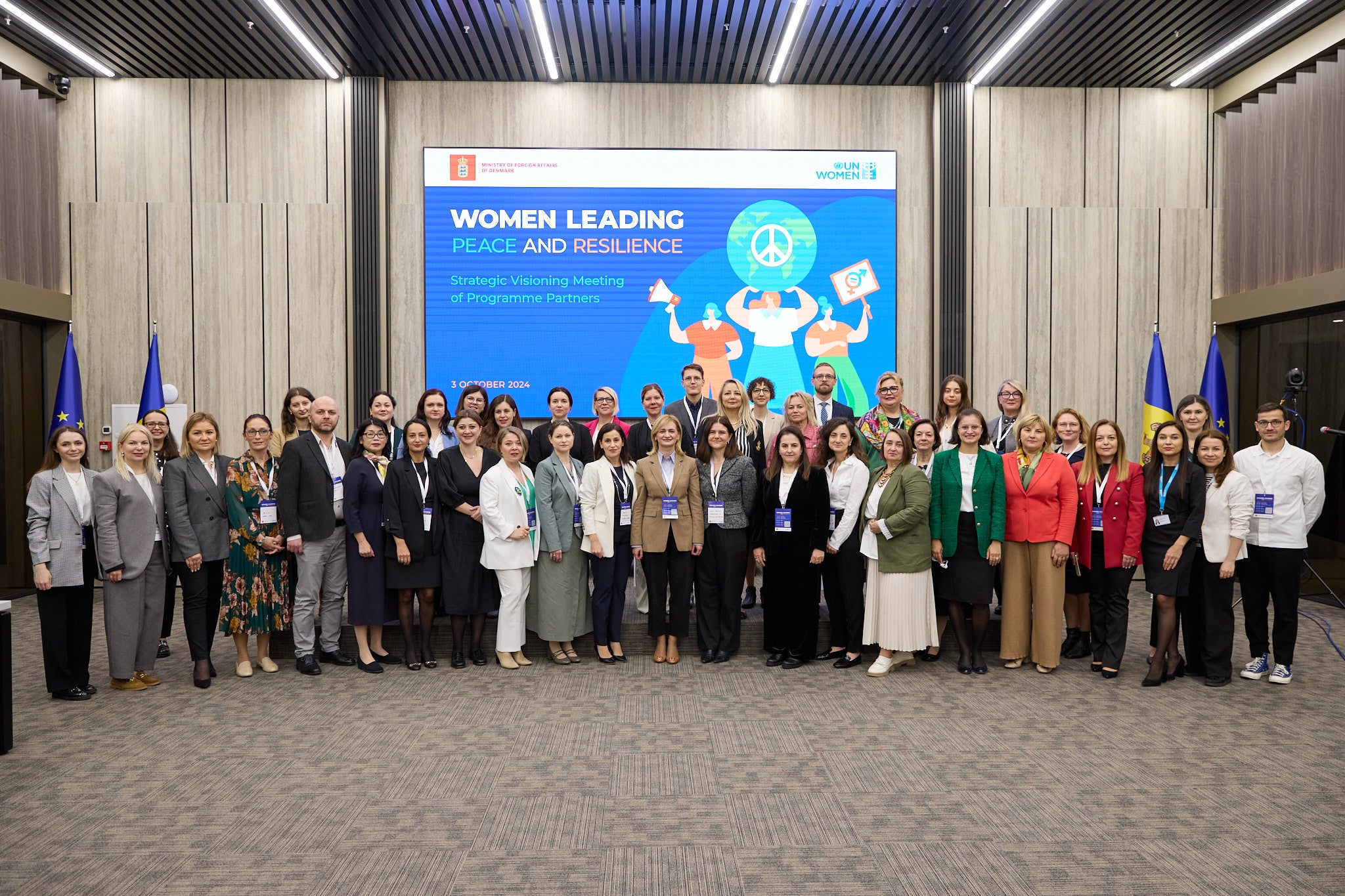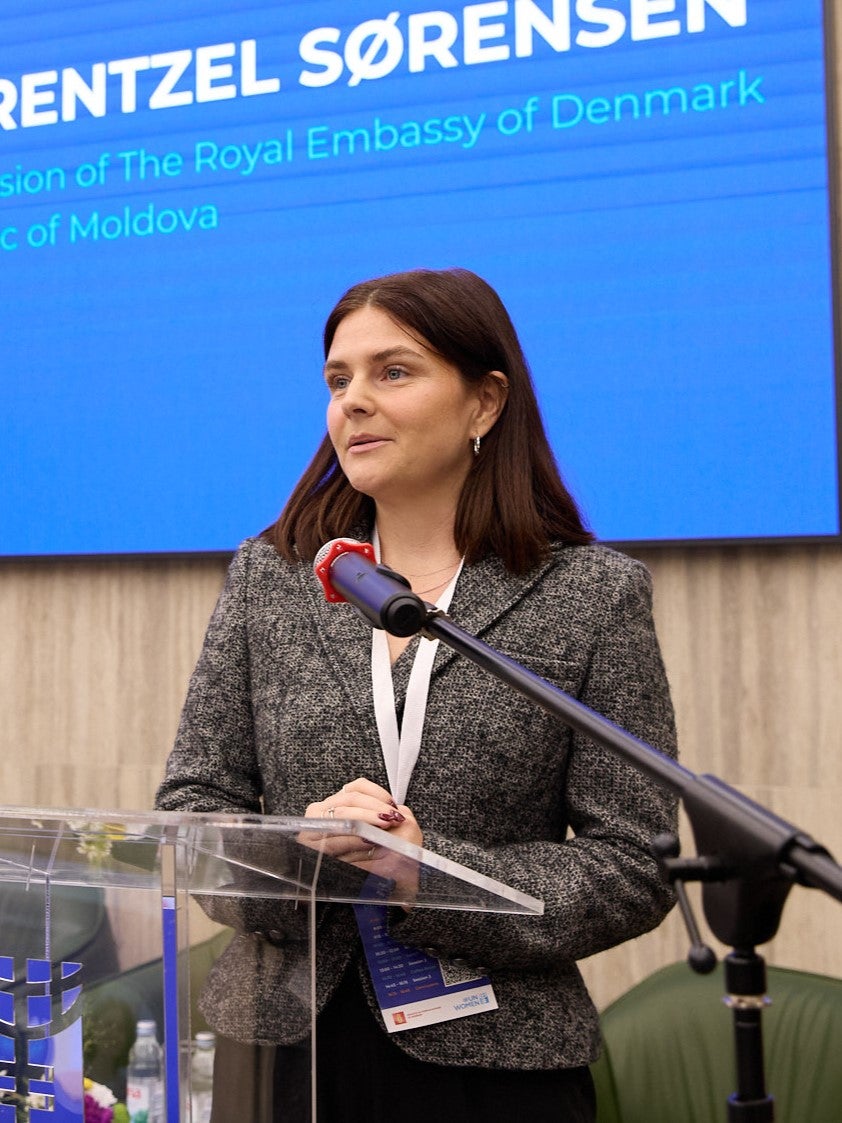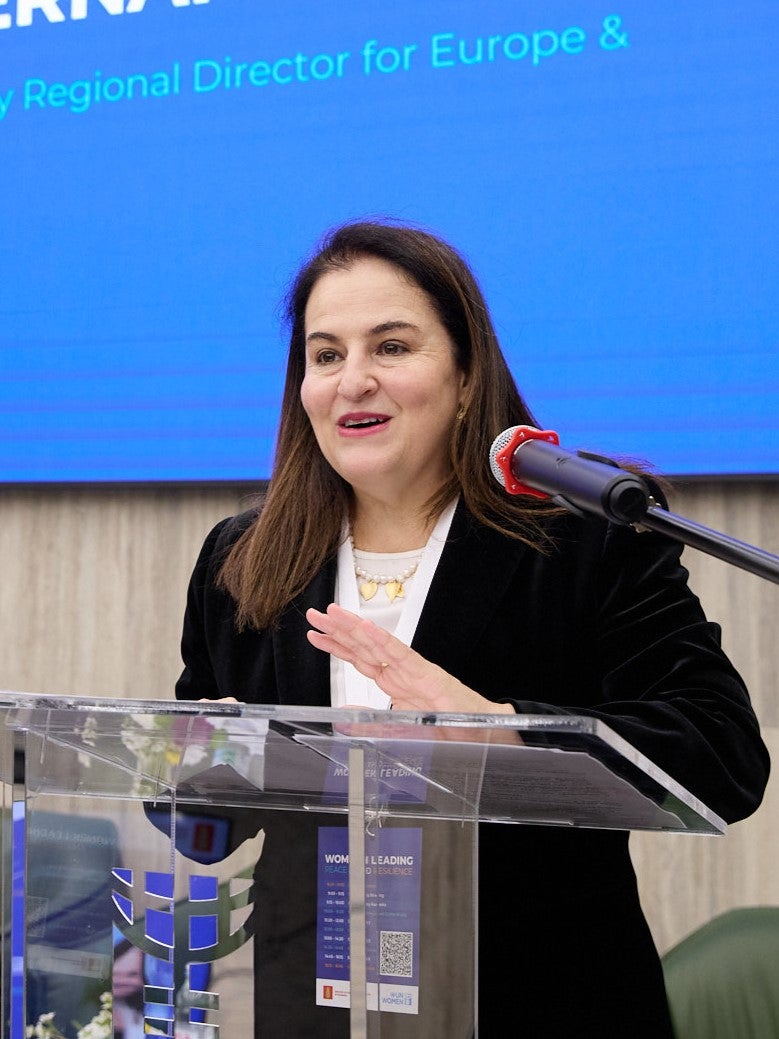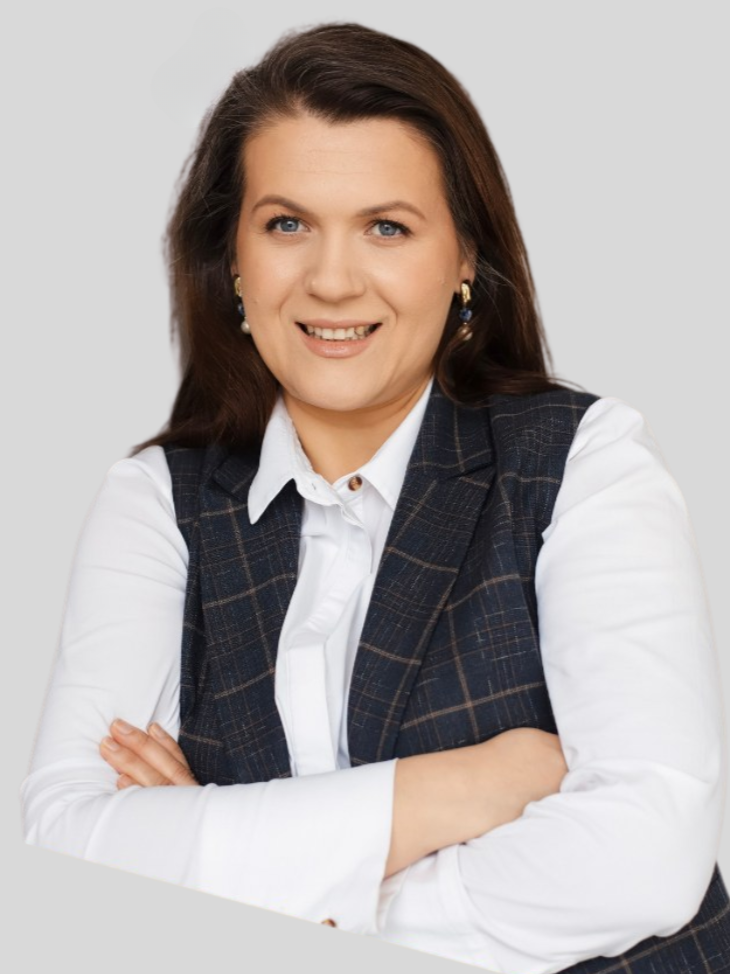Participants emphasized the importance of the EU accession process not only for gender equality but also for democratization, good governance, and the socio-economic development of the accession countries. Katarina Ivanković Knežević, Director, European Commission’s Directorate-General for Employment, Social Affairs and Inclusion, shared the recent progress in the Gender Equality Acquis and highlighted the importance of gender mainstreaming and targeted measures in achieving gender equality. Progress made by the accession countries so far was discussed, including Serbia's experience with gender mainstreaming in IPA and the accession process, supported by UN Women under the Gender Equality Facility approach.
Strategic Visioning Meeting of the “Women Leading Peace and Resilience” Programme Marks Significant Progress on Gender Equality and Peacebuilding in Europe and Central Asia
Date:
The “Women Leading Peace and Resilience” Programme convened its Strategic Visioning Meeting in Chișinău, bringing together over 50 participants from Georgia, Moldova, Ukraine, and the wider region. The event gathered key stakeholders, including civil society organizations (CSOs), public institutions, international organizations, and the private sector, to discuss strategic pathways for promoting gender equality and enhancing women's leadership in peacebuilding and resilience-building efforts.

The meeting, held in collaboration with the Ministry of Foreign Affairs of Denmark and co-hosted by the Government of the Republic of Moldova, reflects the programme’s continued commitment to ensuring that women and girls have access to targeted support and that their leadership is prioritized in building more resilient and gender-equal societies.
In the opening remarks Moldova’s Deputy Chairwoman, Doina Gherman, highlighted gender equality progress, including a rise in the Global Gender Gap Index and increased female representation, supported by UN Women and Denmark. UN Women’s Elisa Fernandez Saenz and Denmark’s Jasmin Frentzel Sørensen stressed the programme's role in advancing gender equality and resilience, particularly in recovery efforts. UNDP’s Steliana Nedera highlighted initiatives like "Greening the Future," reaffirming the commitment to collaborative, inclusive development in the region.
“This programme is crucial as Moldova continues to make progress toward ambitious goals, including EU integration and gender equality. Together with our partners, UN Women’s efforts will be key to driving this forward.”
– Jasmin Frentzel Sørensen, Deputy Head of Mission of the Royal Embassy of Denmark in Chișinău, Republic of Moldova

“A gender equal world is within our reach if we choose it. Through our strategic partnership with Denmark, we are taking concrete steps to make this a reality for women and girls in Georgia, Moldova, and Ukraine. We are determined to play our part and ensure no one is left behind.”
– Elisa Fernandez Saenz, UN Women Deputy Regional Director for Europe and Central Asia

“Women’s economic empowerment is essential for post-war recovery, with UN- and EU-backed initiatives helping women entrepreneurs rebuild their livelihoods, contributing to the broader framework of the Alliance for Gender Responsive and Inclusive Recovery.”
– Maria Zheltukha, representative of the Office of Deputy Prime Minister for European and Euro-Atlantic Integration of Ukraine

“Care work plays a crucial role in the lives of women in the Republic of Moldova and directly influences their ability to contribute to the economy. In many cases, caring responsibilities – whether for children or the elderly – fall largely on women, which can limit their access to professional and entrepreneurial opportunities. To support women in balancing these responsibilities with career success, states should develop affordable care services, make work schedules more flexible, and promote female entrepreneurship through training and access to resources.”
– Natalia Efros, Entrepreneur

The meeting also highlighted that Moldova, Georgia, and Ukraine have shown progress in providing childcare and support services, though time-use surveys reveal persistent gender disparities in unpaid care work, especially among parents. Despite visible advancements, limited gender-responsive funding hinders the full implementation of gender mainstreaming in policies and services. The discussion underscored the need to boost women’s participation in emerging, profitable sectors and emphasized that effective gender mainstreaming requires both targeted actions and adequate funding to address gaps and maximize impact across sectors.
Discussions centered on the need for inclusive peacebuilding that amplifies the voices of women, especially those affected by conflict. Key points included further funding and implementation of NAPs, localization with a focus on women and girls' needs, enhanced promotion of women peacebuilders and activists, addressing and prosecuting conflict-related sexual violence, and expanding the WPS agenda to cover emerging issues like climate change and cybersecurity. The discussion also highlighted the strong EU policy framework and commitment to the WPS agenda.
Collaborative Partnerships for Sustainable Change
The meeting highlighted the critical role of collaborative partnerships in delivering tailored and sustainable solutions for women and girls across Georgia, Moldova, and Ukraine. By fostering strong cooperation between CSOs, government entities, and international organizations, the programme seeks to deliver context-specific, sustainable solutions that meet the needs of women and girls across programme countries.
A cornerstone of the programme’s success is the flexible funding provided by the Ministry of Foreign Affairs of Denmark to the programme countries’ Strategic Notes, enabling targeted, timely interventions that respond effectively to the specific needs of women and girls in Georgia, Moldova, and Ukraine.
Prior to the Strategic Visioning Meeting, UN Women and the Ministry of Foreign Affairs of Denmark held the first Steering Committee Meeting of the "Women Leading Peace and Resilience" programme. This session brought together representatives from both organizations, along with representatives from UN Women Georgia, Moldova, and Ukraine, to review the programme’s initial progress and set strategic priorities.
For more information on the “Women Leading Peace and Resilience” Programme, please visit link.





